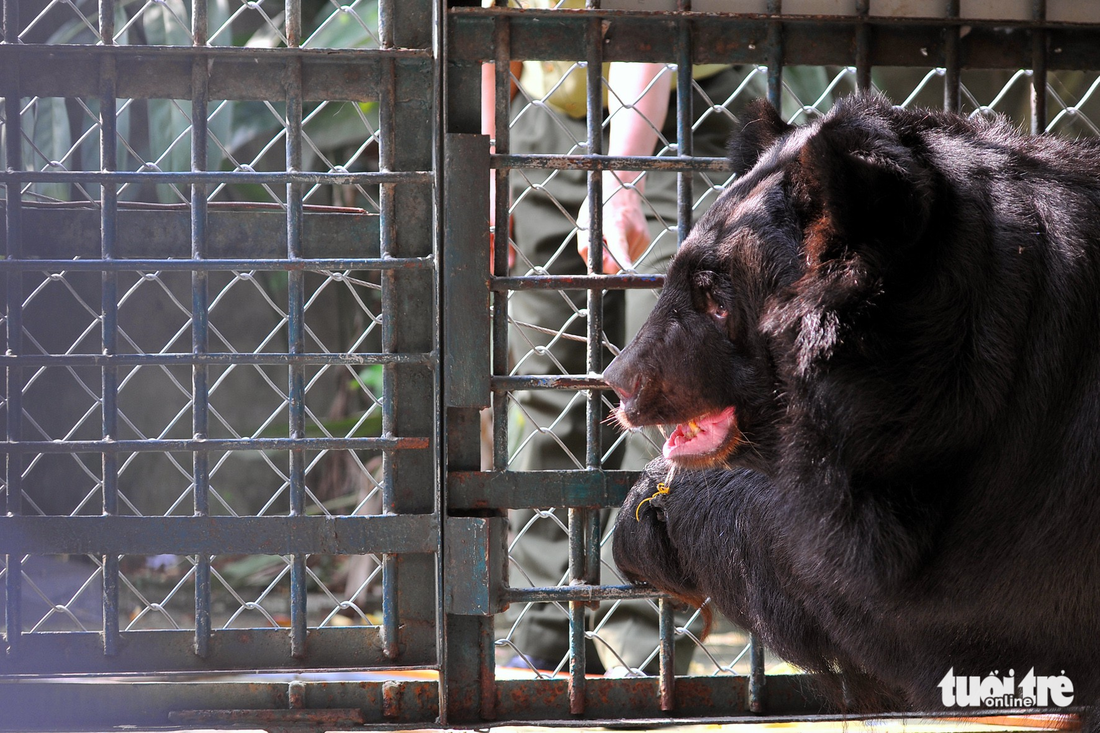All of the bears in captivity in the southern Vietnamese province of Dong Nai have been implanted with new, modern microchips in an effort to improve checking them.
The program was implemented at bile farms across the country on Friday by officers of the Dong Nai forest protection department in collaboration with the World Animal Protection (WAP).
Besides the microchip installation, officers also updated and provided owners of local bile farms with the latest governmental regulations on collecting bear bile, and raising and transporting the animal.
From August 2005, bears raised in captivity in Vietnam have been required to have microchip implanted, which helps authorities to keep track of the identity and location of them.
However, checking bears implanted with the old microchip is cumbersome as the workers must physically contact the device, thus having to anesthetize the animals first.
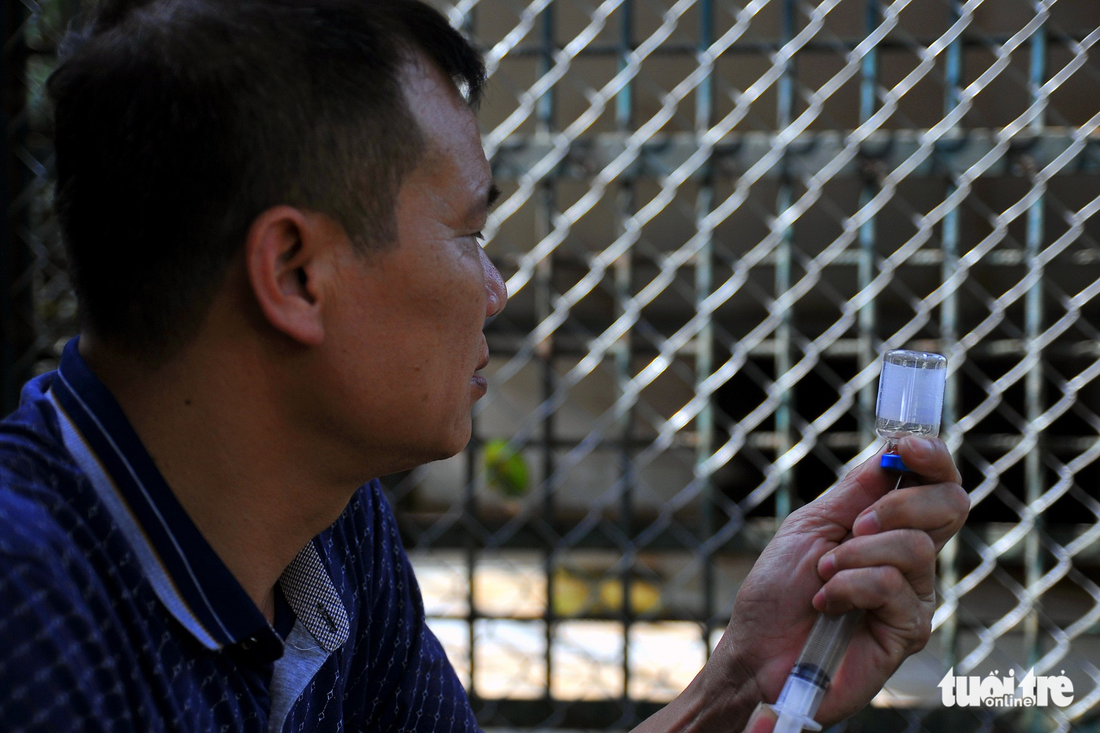 |
| A worker prepares anesthesia before injecting into the bears. |
With the new technology, workers are able to scan the microchip remotely from outside the cage by using a digital scanner.
Implementing the new microchip brings many benefits by reducing the cost of anesthesia and cutting down checking time, according to officers.
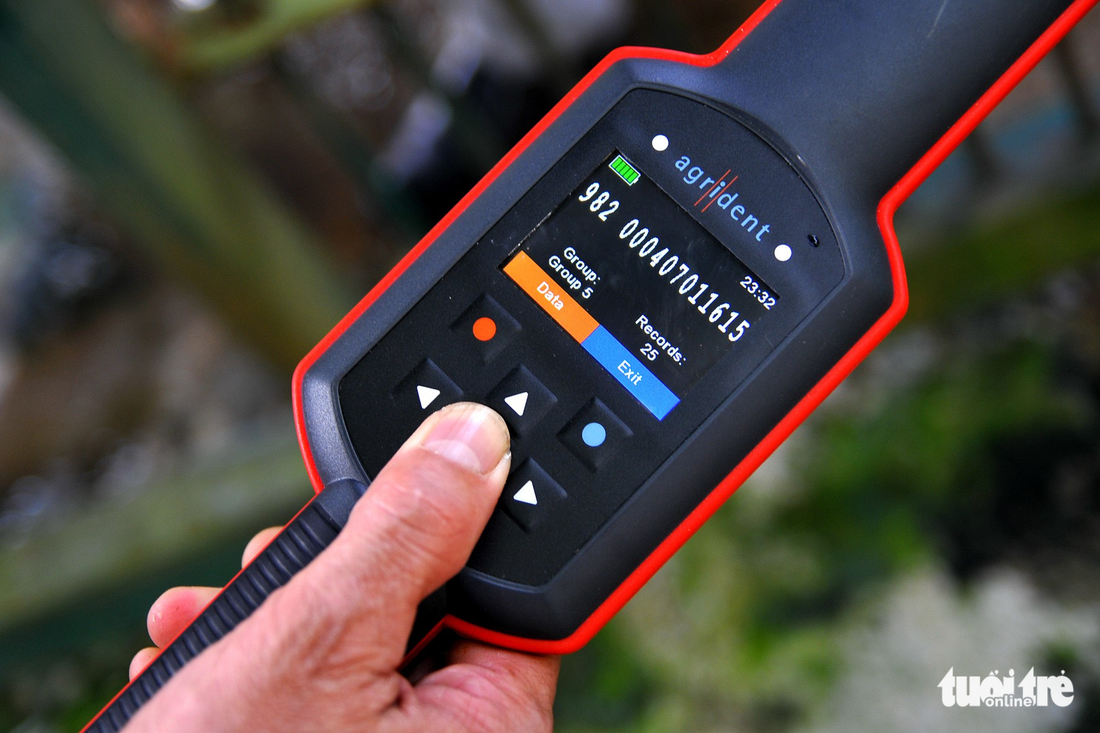 |
| Photo of a microchip scanner |
The new microchip implanting program is applied to Hanoi and Hai Phong in the northn, and Dong Nai and Binh Phuoc in the south, which collectively house 340 captive bears.
The program has been completed in three of the locales and will soon be extended to Binh Phuoc.
The organizers also have plans to continue the program on a wider scale – across Vietnam, in 2018, in a bid to reduce the number of illegally raised bears.
In Vietnam, bear bile is a popular commodity, hailed as being able to cure various diseases and quickly heal exterior injuries.
While there were some 4,000 bears held in captivity in Vietnam from 2015 to 2016, the number has been reduced to below 1,000 to date, largely thanks to the microchip initiative and many other campaigns calling on people to use bear bile moderately.
According to government regulations, bears found without proper documents and microchip will be confiscated and sent to rescue centers.
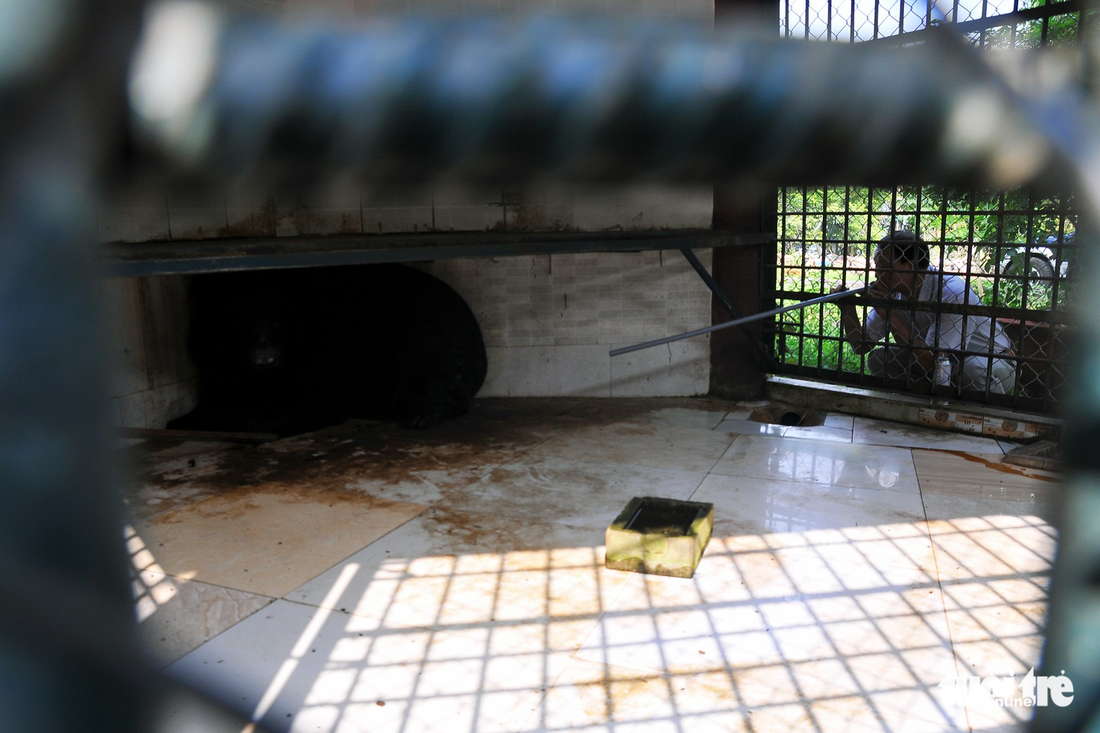 |
| A man anesthetizes a bear using a long injection pole. |
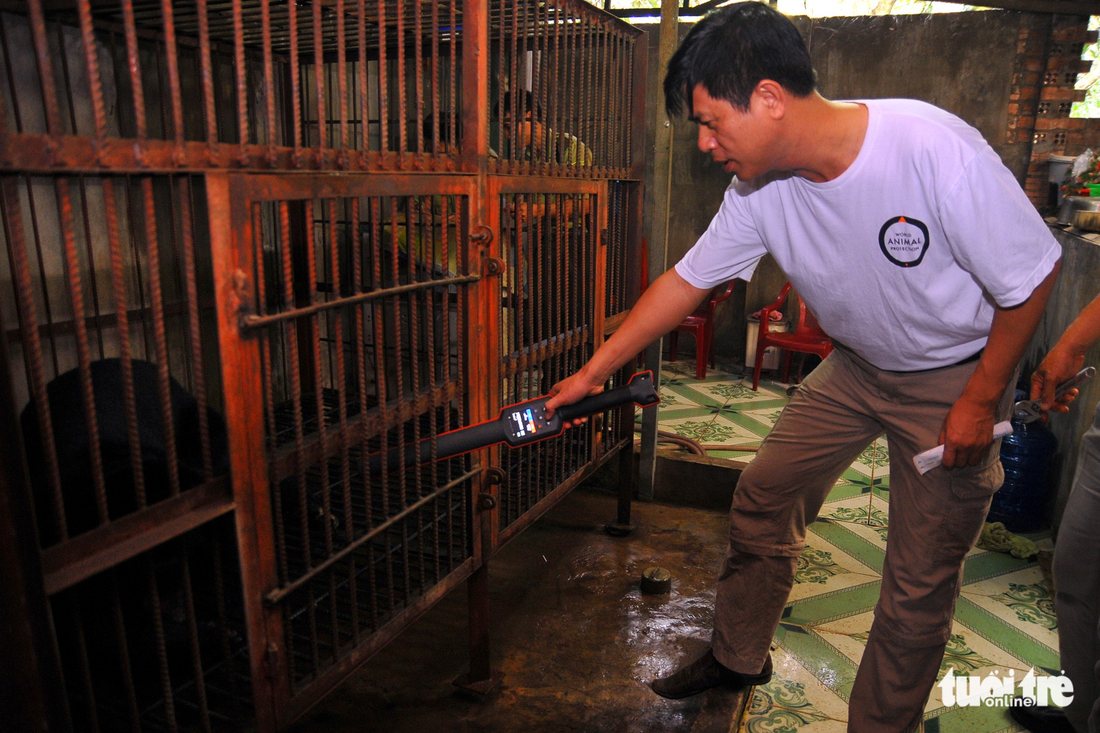 |
| A man checks a bear using a microchip scanner from outside the cage. |
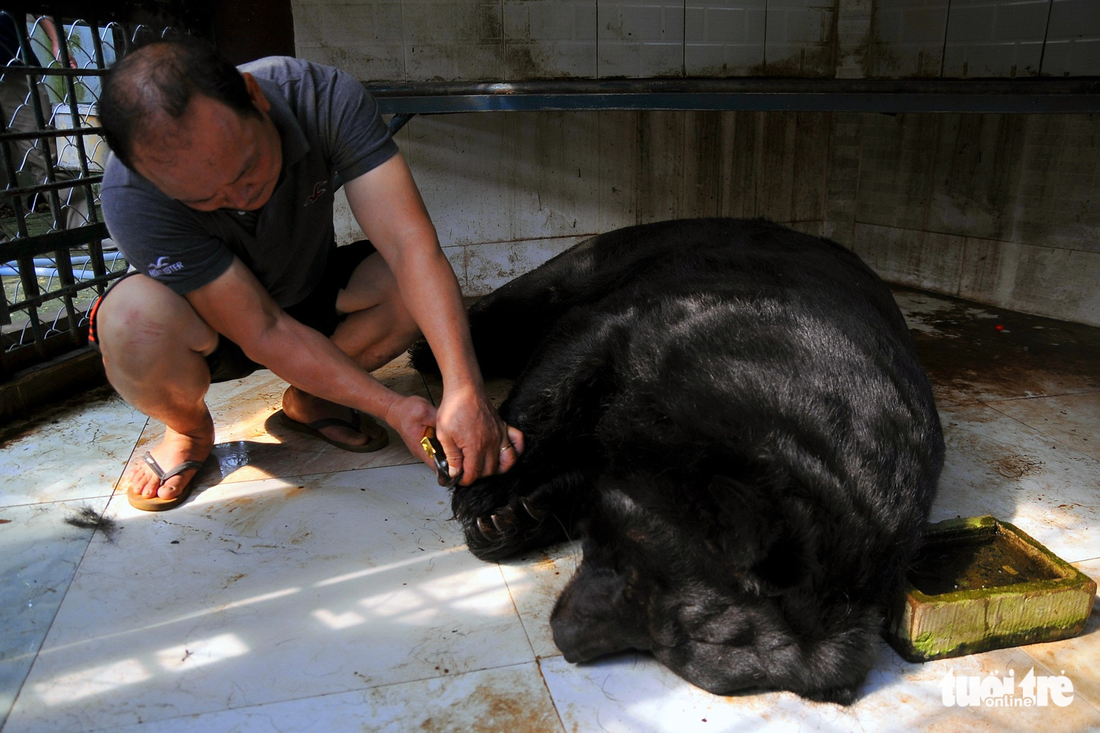 |
| A man takes care of his bear by cutting its toenail while it is anesthetized. |
Like us on Facebook or follow us on Twitter to get the latest news about Vietnam!



